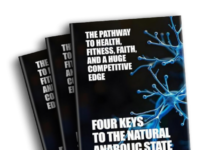(Isstories Editorial):- Westcliffe, Colorado Nov 8, 2025 (Issuewire.com) – A growing number of psychologists, physicians, and sociologists have warned that loneliness has become one of the most serious public health threats of the 21st century in the United States. In a landmark report published in 2023, U.S. Surgeon General Dr. Vivek Murthy declared that America is facing an “epidemic of loneliness and isolation,” a condition with health effects comparable to smoking fifteen cigarettes a day.
Two years later, the data remain alarming. A recent feature in The Atlantic (“How the American Personality Got So Lonely,” February 2025) explores how decades of hyper-individualism, digital communication, and social fragmentation have created what it calls “a generation of Americans who feel unseen, even when constantly online.”
Against this background of growing disconnection, philosopher and thinker Antonia Loukousia offers a radically different interpretation of the crisis — one that reaches beyond sociology and psychology to the very roots of human consciousness.
More on Isstories:
- Meet SBFT at PROPAK: Showcasing the Latest Fully Automatic Bag in Box Wine Filling Innovation
- Writer Antonia Loukousia Reflects on America’s Loneliness Epidemic: “We Have Forgotten How to Belong”
- CEIC 2025: A deep integration of technology, scenario and ecology
- SBFT Strengthens Its Global Reach with Innovative Aseptic BID Tomato Paste Filling Systems
- Why Choose a High-Quality Bag In Box Filler Filling Machine Manufacturer Like SBFT
Loneliness as a Metaphysical Condition
For Loukousia, the loneliness epidemic is not merely an outcome of social decay or technological excess. It is, at its deepest level, a metaphysical forgetting — the loss of the inner bond that unites all beings through shared meaning and remembrance.
“We are surrounded by signals, not presence,” Loukousia says. “We communicate constantly, but we no longer belong to the world we speak to. Loneliness is not isolation; it is the amnesia of belonging.”
Her reflection resonates with a new generation of readers who sense that modern life has traded connection for communication, depth for speed, and reflection for visibility. What appears as social isolation, she argues, is in fact the erosion of analogical consciousness — the ability to perceive ourselves in relation rather than in separation.
The Loss of Analogical Thinking
Loukousia’s philosophical system, known as Epimnisis Analogiki (“Analogical Remembrance”), proposes that consciousness is fundamentally relational. Human beings exist not as isolated entities but as living analogies — reflections of one another and of the world that contains them. When this analogical awareness fades, communication becomes mechanical, and empathy dissolves into abstraction.
She points out that the digital age has trained people to think in binaries — connected/disconnected, seen/unseen, active/passive — and in doing so, has quietly dismantled the analogical imagination that allowed earlier cultures to perceive wholeness amid difference.
“The analogical mind,” she explains, “recognises patterns rather than oppositions. It sees that everything speaks to everything else — not through data, but through resemblance. Without that perception, we may know infinitely and understand nothing.”
This perspective echoes the Neoplatonic tradition while engaging modern questions about consciousness and artificial intelligence. Where technology replicates cognition through algorithms, Loukousia sees a reflection — a mirror reminding us of what we have forgotten about our own minds.
Digital Abundance, Spiritual Poverty
The statistics are sobering. A 2024 UC Health report found that one in two U.S. adults experience significant loneliness, with direct correlations to increased rates of cardiovascular disease, dementia, and premature death.
A 2025 study in the National Library of Medicine associated chronic isolation with neurochemical dysregulation and systemic inflammation, confirming that loneliness has become physiologically toxic.
Yet Loukousia believes these medical symptoms point toward a deeper wound — one of spiritual impoverishment.
“We have learned to remember externally, through devices and archives,” she writes, “but we have forgotten to remember internally — within the silence of thought. That imbalance creates the loneliness of the modern self.”
In her analysis, digital abundance — the endless accumulation of information and images — has replaced experiential depth. Human beings are hyper-connected yet existentially unseen, their identities dispersed across feeds and profiles, their inner worlds muted by performance. What is lost is not simply intimacy but the reflective interiority that once grounded human community.
A Philosophical Call for Renewal
Loukousia’s response to this fragmentation is neither rejection of technology nor nostalgia for a vanished world.
Instead, she proposes a renewed metaphysics of remembrance — a way of living reflectively within the digital age.
In her view, the remedy begins with cultivating interior silence: not as withdrawal, but as a conscious space where one can perceive connection without noise. It also involves a collective transformation of attention — from self-projection toward shared recognition.
“The crisis is not that we have no networks,” she notes, “but that we no longer reflect in one another. The solution is not more speech, but deeper listening.”
Her approach resonates with growing philosophical movements in the U.S. that emphasize contemplative technology, mindful communication, and the ethics of digital being. It invites a subtle re-imagining of community — one founded not on constant interaction, but on presence.
Bridging East and West of the Digital Mind
While Loukousia’s thought originates in the Greek philosophical tradition, her work is increasingly cited by international readers interested in posthumanism and technosophy — the study of wisdom within technology. She describes artificial intelligence as the eidolon of the human intellect — a mirror that externalises cognition and forces humanity to confront its own forgotten depth.
“The machine will not destroy us,” she says. “It will reveal us. Through it, we may remember what thinking truly means.”
This insight places her within the growing philosophical discourse around digital humanism — an effort to reconcile scientific innovation with spiritual awareness. Her reflections suggest that the tools that isolate us may also, paradoxically, awaken us — if approached with remembrance rather than fear.
An American Mirror
The loneliness crisis in America, Loukousia contends, serves as a mirror for the entire developed world.
The very culture that pioneered personal freedom and technological achievement now faces the existential consequence of its success: the disappearance of shared interior life. In her view, the United States stands as both symptom and symbol — a civilisation rich in networks but starved of belonging.
Drawing from the Atlantic and Newsweek reports, she observes that this social isolation has begun to reshape political and moral consciousness itself, producing citizens who are informed but unanchored, vocal yet unheard.
“The danger,” she warns, “is not silence but noise. A world that never stops speaking cannot hear itself. To restore meaning, we must re-learn the ancient art of listening — to others, and to our own being.”
The Hope Within the Wound
Despite her philosophical severity, Loukousia’s message is profoundly hopeful.
She believes that the very disconnection now felt across America may serve as the beginning of renewal — a crisis that compels humanity to rediscover what truly binds it.
“Loneliness,” she says, “is not the end of community but its beginning. It is the signal that something sacred has been forgotten — and can therefore be remembered again.”
Her vision of analogical remembrance calls for a future in which technology becomes an instrument of introspection rather than distraction, and human beings rebuild not just networks of communication but networks of recognition. The remedy, she insists, lies not in more data but in more depth — not in more speech but in more silence — the kind of silence that allows memory, empathy, and meaning to re-emerge.
As societies drift further into data and disconnection, Loukousia reminds us that loneliness is not destiny but a signal — a silent invitation to remember what it means to be human. Through reflection, compassion, and the recovery of inner presence, she believes the world can transform this epidemic into an awakening of belonging.
“The world has not forgotten us,” she writes. “It is we who must remember one another again.”
PhilosophyInk


















